- Home
- Patrick Carman
Pulse Page 8
Pulse Read online
Page 8
“Stop messing with my stuff, that’s all I’m asking,” Hawk said. He was so sure that the Quinns were taking his Tablet in order to get him to lower the price of Wire Codes, he was willing to risk a punch in the face.
“That’s going to be real easy, because I already told you; I’m not taking your Tablet. All the same, I think I need some new insurance of my own. Keep Faith out of this. There’s no reason for her to know; we were just having a little fun. You keep your mouth shut, and I’ll do the same. A lot of people around here would like to know who makes the Wire Codes at this school. I think I know who that might be.”
“I know, too,” Clara said, assuming they’d gotten the upper hand.
“You’re forgetting an important detail. It’s common with drug addicts, so you shouldn’t feel bad. I know who takes them,” Hawk said. “I keep a record of every transaction. Not just when they’re purchased, but when they’re used. And on what Tablet.”
He was scared to death. He had just told a huge lie; and furthermore, he’d made a monster blunder. If he’d had those kinds of records, there would be only one place to keep them. On his Tablet! He’d just given the Quinns one more reason to keep taking it, and the next time he might not get it back until it was too late. All he had going for him was Faith Daniels. The only thing that mattered now was how much Wade liked her.
Wade shook his head and smiled, backing away from Hawk. He lurched forward with a fist that stopped just shy of Hawk’s face, but Hawk didn’t flinch, not even an inch.
“Business as usual then,” Wade said.
Hawk could hardly breathe, but he was able to get the words out before he turned around and walked away. “Business as usual.”
Chapter 8
You Moved Me
Once Hawk was gone, Faith took her Tablet to bed and lay down, flipping through images she’d drawn when she should have been studying. She used a stylus to draw the really intricate ones: drawings of landscapes and portraits of friends. She’d drawn Liz sitting in front of the rubble at the old mall, holding out her hand toward the open space, searching for someone to grab hold of. There was a tab at the top of the screen, and Faith tapped it. A photograph expanded on the screen, taking up most of the real estate in the top right corner. The photo was a mirror image of the drawing: Liz sitting on the bench, holding out her empty hand toward the camera, her eyes searching for something beyond what Faith could see. Faith’s eyes filled with tears, and her vision went blurry.
You can’t be gone. I need you here, with me. What am I going to do without you?
Faith knew it was morbid emotional suicide to look at the picture, knew it would hurt like hell to wallow in the pain she felt. But she couldn’t help herself. She was all alone in the world. She’d lost her only real friend.
Flipping through digital pages with her finger, Faith arrived at a blank screen and picked up the stylus. What she really wanted, the thing she deeply wished for at that moment, was a pencil. During moments of deep sadness she sometimes found it comforting to use pre-Tablet instruments of expression. She thought she heard just that—a pencil—rolling toward her on the desk with that very distinct sound a rolling pencil makes, each of its six sides clanging as it went. The sound stopped as quickly as it had started, and she chalked it up to a mushy hangover head she still couldn’t shake.
Sometimes, in her more nostalgic moments, Faith would covet the feeling of lead moving on paper. She knew it was extravagant and useless, because whenever she wrote on paper, it inevitably got lost or destroyed. It was a rare drawing or note that Faith had produced with a pencil that had not been misplaced or abandoned in one of her many moves. In the world in which she’d grown up, she had been taught from an early age that everything she needed was kept on her Tablet. Even if she lost the Tablet, it wouldn’t matter, because everything she had ever created was stored in the cloud. It never crossed her mind, in a serious way, to write or draw anything important on something as transient as a piece of actual paper. In any case, the urge to stay in bed was much stronger than the pull of a pencil so far away on the desk, so she never made it out from under the blanket.
Faith began to draw on the screen with her stylus, slowly at first and then with a kind of furious, angry speed that produced a harsh but brilliant drawing. There was no doubting an artistic ability that blossomed most powerfully during times of grief. There had been a lot of grief lately, and her work had turned darker and more mature. It was sad, really, that the world had to turn so dark in order to bring out her true talent.
When she was done, she tucked her Tablet under her pillow and closed her eyes, hoping to fall away into a dream so she could forget. Her body curled up into a ball as she turned on her side, pulling the covers up close to her face. But sleep wouldn’t come. She chewed on the nail next to her pinkie finger—a major failure, because she’d managed to leave it alone for a long time—and quickly ruined what had been a smooth curve against the tip of her ring finger.
There was a sound from the desk across the room, almost silent, like it hadn’t wanted to be heard. The sound reminded her of something, but she couldn’t put her finger on what it was, perhaps because she hadn’t heard the sound very many times. Was she sleeping but didn’t know it? Faith bit down on her fingernail, peeling away a piece dangerously close to the skin. It hurt, but at least it was something other than the heavy weight in her chest, that distinct feeling of a broken heart nowhere near mending.
“Hawk?” Faith whispered, but there was no answer. She lifted her head, expecting to see him, glad about the thought of it. She wasn’t close to him, not really, but at least he was a person she knew. She watched as a pencil and a white note card fell to the floor and landed on the soft carpet like they’d been suspended in midair and suddenly dropped all at once. The pencil hit first, bouncing once and then lying like a dead animal on the plush, gray carpet. The note card fluttered slightly, catching on the air beneath it, then shot down like an airplane crashing into the ground. It was blank, that much she could see as she blinked three or four times, making sure she was fully awake. It was at that moment she realized what the mysterious sound had been. It was the sound of a pencil writing on paper, the melancholy sound she’d been too lazy to get up and create with her own hand.
She looked at the window to her room, where she’d pulled the blinds half shut, but there was no wind coming in.
Well, she thought, there’s no hope now. A nap was out of the question. She was wide-awake and nursing a bad headache, but she sat up anyway. Curious about the pencil, she walked over and picked it up, examining it like a scientist, and concluded that, yes, it had simply rolled off the desk for some unknown reason. She picked up the white note card as well, staring at its blank surface. When she went to place it back where it had come from, she turned it over absentmindedly and saw that the note card hadn’t only fallen to the floor; it had also been written on.
You moved me.
“What the hell?” Faith said, holding the pencil like a weapon she might need if a Drifter jumped out of her closet. But there was no one; the room and the house that surrounded it were empty.
You moved me? Faith thought as she returned to the comfort of the bed and tried to piece everything together. There was something calming about pulling the blanket up close, like it might magically serve as a shield against the dangerous world outside. She was clearly out of her mind. She’d taken something—Wade, he’d given her something without her consent. That had to be what was causing the twisted dream in which she was trapped. Whatever strange things had occurred last night, they were still happening now. Her mind was playing tricks on her. She’d written those words in her sleep and moved the pencil. She was hallucinating; that was the answer. It was the only answer.
But Faith couldn’t shake the thought that she’d wanted the pencil and the note card, wished she could hold them, and thought she’d heard the pencil rolling toward her for an instant. She shut her eyes tightly and tried to forget, but the words kept
coming in waves.
You moved me. You moved me. You moved me!
Faith had only sat in the chair she was in one other time. What she was about to have done was going to hurt, she knew. Maybe, down deep, that was why she was going to do it; but she told herself that wasn’t true. She only did this on very special, very sad occasions. She knew the tattoo would help. It would hurt a lot, and that would drain some of the pain out of her. It would give her a reminder so she’d never forget. It would be the beginning of the loneliness going away, and a beginning meant there could be an end waiting somewhere off in the distance.
“You sure this is what you want?” the artist asked. Her arms were covered in tattoos, brightly colored and beautiful. Vines of tattooed green ivy ran up the sides of her neck, crawling onto her cheeks and disappearing into her long hair.
“Yeah, just don’t make it very big. My parents will kill me if they find out.”
“I know all about parents, kiddo. No problem there. But this is going to hurt more than the last time. You really went off on this thing.”
Her name was Glory, at least that was what she called herself, and she was fairly mesmerized by the drawing Faith had made. The lines were aggressive and cruel, but they added up to a severe beauty Glory half wished she could have tattooed on her own skin. The thick, muddy lines would be hell to pay for Faith. Glory had seen grown men cry laying down that kind of ink.
“Same place, other side,” Faith said as she nodded her resolve to have it done. “Put it up as high as you can, like two inches wide, so it’s hidden.”
Glory nodded and took out her Tablet. Faith held her own Tablet, and the transaction began; first the drawing was transferred from Tablet to Tablet, then the Coin to pay for the procedure. It made a large dent in her account, and Faith rolled onto her side in the chair, closing her eyes as Glory prepared the needles and ink.
“Totally black, like last time?” Glory asked, wishing she could put down some color.
“Yeah, black as you can make it.”
Glory shook her head almost imperceptibly. She’d learned to push down her feelings at times like this, but seeing this damaged creature curled up on the long chair like a baby brought back some bad memories. Faith pulled her long blond hair into a fist and tucked it under her neck like a pillow. It was thick and just a little bit wavy, and long enough to cover up what Glory was about to do.
Faith felt the sting of the needle touching the tender skin at her hairline but didn’t move. She absorbed it like a sponge and settled in for the long haul. She curled harder into a ball, touching the other side of her neck where another tattoo lay hidden.
“You know,” Glory said over the electric hum of the tools she used. “We go together like salt and pepper, you and me. Faith and Glory. Like we were fated to find each other.”
“Sure, I guess.” Faith was still nursing a headache, but it was rapidly going away in the shadow of the fire on her neck.
“Might make a pretty tattoo—Faith and Glory—all swirly and nice.”
Faith could see the image clearly. She was already drawing it out in her mind, but it wasn’t swirly and nice. The word Glory was surrounded in bright-green ivy, Faith was tangled in barbed wire. And for once there was color—red—bleeding in lines off Faith’s name.
When it was over, Glory offered to show it to Faith using two mirrors, one in front and one behind; but Faith didn’t want to look at it until at least a little bit of the gross swelling had gone down. It would be days before it would calm down for good, and she had a feeling she wouldn’t have the strength to look at it until it stopped hurting. She’d nurse the pain, imagine the image; and when finally she did look at it, her pain would be smaller.
“Thank you, Glory. I don’t think I’ll be back.”
“Never say never. These things are addicting.” Glory held out her arms, in part to show off all the tattoos that covered her skin, but also to invite Faith into an embrace. Faith didn’t put out her arms; she just moved a step closer and let Glory enfold her.
“Faith and Glory,” she said. “You remember that. We’re bound for both you and me.”
Faith wasn’t so sure, but she liked the way Glory’s dark skin smelled sweet and gentle, the way her embrace was firm but soft.
An hour later Faith was back home, standing in her bathroom. She was staring into a mirror and holding a smaller one in her hand, thinking about looking. She was not thinking of the new tattoo but the old one, an image she only allowed herself to look at once in a while. It had been a month or more since she’d let herself look there; and for some unknown reason, she began this exercise by lifting the wrong side of her hair. Was it an accident, or did she really want to see the work Glory had done and hadn’t been able to help herself? Either way, once she’d started to see the new tattoo, she couldn’t stop. Faith pulled her hair all the way up and saw the damaged, swollen skin. Tattoos never looked good on the first day. They looked more like the result of an inky, self-inflicted cutting session. But the image was there, and it brought her to tears all over again. It was a pair of holding hands, the wrists disappearing up into her blond hair. The lines were fierce, but the result was powerful, like two people who would never let go of each other. And Glory had been unable to help herself. She’d added a tiny thread of green ivy wrapped around the wrists. She’d added a small presence of hope in a composition of grief, like a white dove against an endless black sky.
“Thank you, Glory,” Faith whispered, because she liked it. It made her feel better.
Faith took a deep breath and let her waves of hair fall against her shoulder. She looked at her Tablet and remembered that she was supposed to go and get the cheese and the flour, because that’s what her parents had told her to do.
Or had they?
As Faith pulled her long hair into a knot behind her head and turned slightly in the mirror, she let herself hold the truth completely. She’d set those messages to come in herself, the reminders from her parents, which had originally been sent months and months before. Faith had copied them and put them on a rotation. And for a stinging moment every day or two, the alerts would appear like her mom and her dad had both reminded her to get the cheese and get the flour, to get home after dark. A split second later she would understand it wasn’t really them. But the brief moment before that was like the electric hum of a tattoo needle marking her soul.
She took a good long look at the image on the side of her neck. It was small and well hidden, tucked secretly against the line of her hair, opposite the new tattoo she’d just gotten. There was a branch of a tree in winter, leafless and cracked. On the branch sat a tattered eagle, staring off into the distance like it would fight on and on no matter the cost. It would never relent.
Faith’s parents were gone. They’d been gone awhile. And they weren’t dead or somehow taken to one of the States without her. They weren’t off running a long and important errand only to return at some time in the future they’d agreed on.
No, Faith’s parents weren’t coming back.
Her parents were Drifters.
PART TWO
Field Games
Chapter 9
Adrift in Skinny Jeans
Field reports traveled to Meredith through a complicated series of hacked Tablets, verbal communications, and carriers. More often than not, the news was not good. She had come to recognize the steady flow of depressing information as a normal part of her day, but the latest report was different. It possessed a weight with the power to change everything.
Ten Drifters were dead. Eleven had gone in; only one had come out.
Every war she’d ever known about had started this way. Up until a certain point, there was always a way out if both sides were willing to negotiate. But certain special events were designed with war in mind. They were orchestrated to send a clear message. There was always one side that pushed the other into an understanding about how things had changed. There would be no more posturing. The enemy had gotten the party starte
d, whether she liked it or not. Meredith was one of the few people who knew a war had just begun. She knew the plans being made in secret and the extent to which the world was about to change. It was information she had kept safe at all cost.
“All but one?” Meredith asked. She was sitting in a vast, empty space, an undisclosed location known only to her most trusted carriers. The location was closer to Old Park Hill than she was comfortable with, but circumstances being what they were, there wasn’t much she could do about it. She had to be close to the front line, if not standing right on top of it. How else could she keep her finger on the most important developments taking place?
“It would seem they walked into a trap,” Clooger said. He was a huge man, bearded and dreadlocked. What little could be seen of his pale skin was scarred in multiple places, like he’d boxed a thousand rounds and been cut open too many times to count. His skin was the color of milk, in part because he never went outside unless it was dark. Very few Drifters did. He held a sawed-off shotgun at his side, half hidden under a long trench coat.
“Tell me everything you know,” Meredith said.
Clooger cleared his throat as if he were about to give a field report to a commanding officer, but when he began to speak, it was more natural than that. He’d long since grown weary of military formality.
“I sent a team to the abandoned building at Old Park Hill just as you asked. Eight men, three woman.”
“And they holed up in one of the rooms, as I ordered?”
Clooger nodded. “They stayed quiet, well hidden. We received one message on the first night—everything was fine—and then nothing.”
Meredith had sent the group to watch, not to fight. “I told them to quietly observe from an empty building. How did most of them end up dead?”

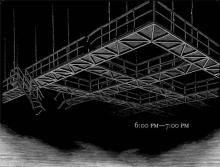 Eve of Destruction
Eve of Destruction Phantom File
Phantom File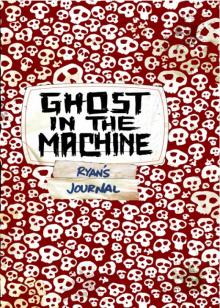 Ghost in the Machine
Ghost in the Machine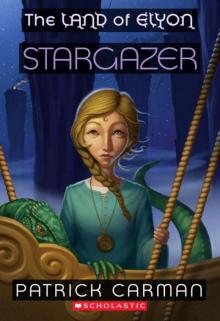 The Land of Elyon #4: Stargazer
The Land of Elyon #4: Stargazer The Tenth City
The Tenth City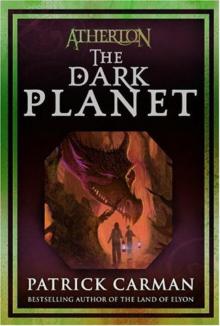 The Dark Planet
The Dark Planet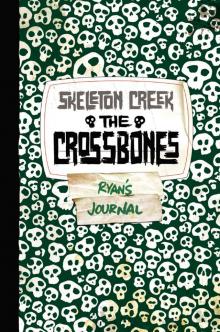 The Crossbones
The Crossbones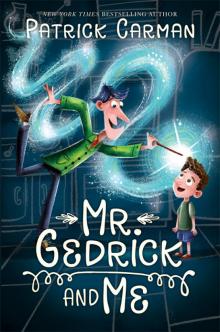 Mr. Gedrick and Me
Mr. Gedrick and Me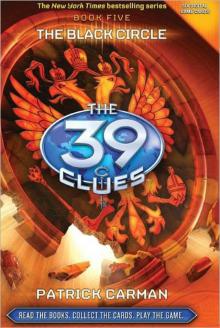 The Black Circle
The Black Circle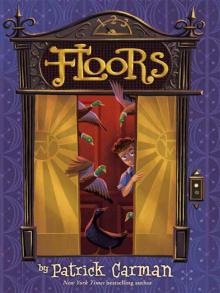 Floors
Floors Beyond the Valley of Thorns
Beyond the Valley of Thorns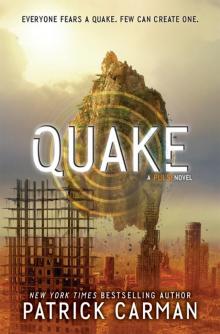 Quake
Quake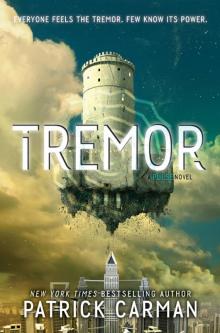 Tremor
Tremor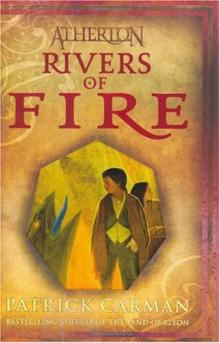 Rivers of Fire
Rivers of Fire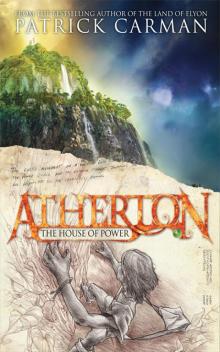 The House of Power
The House of Power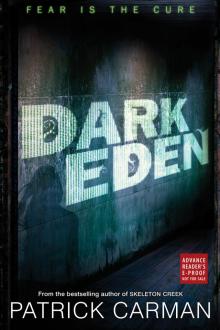 Dark Eden
Dark Eden Into the Mist
Into the Mist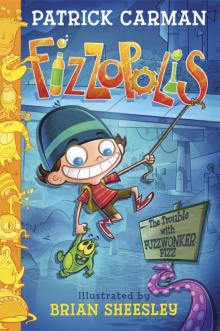 Fizzopolis: The Trouble With Fuzzwonker Fizz
Fizzopolis: The Trouble With Fuzzwonker Fizz Pulse
Pulse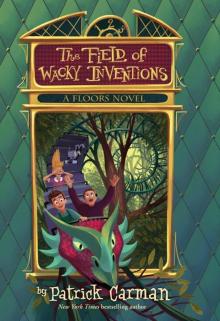 3 Below
3 Below The Dark Hills Divide
The Dark Hills Divide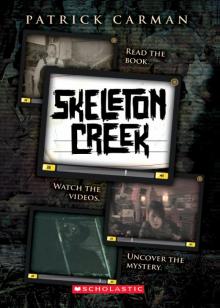 Skeleton Creek
Skeleton Creek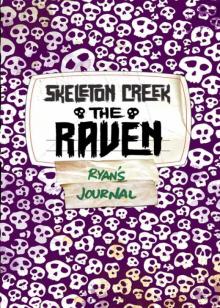 The Raven
The Raven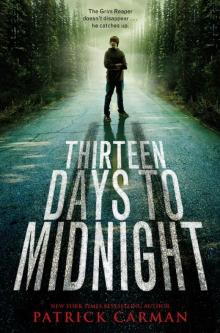 Thirteen Days to Midnight
Thirteen Days to Midnight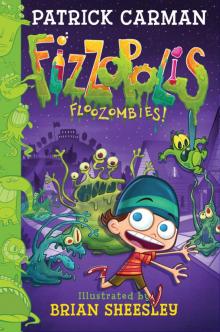 Fizzopolis #2: Floozombies!
Fizzopolis #2: Floozombies!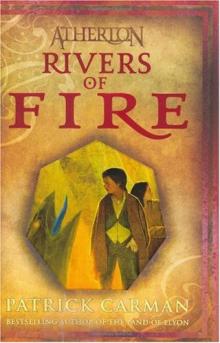 Rivers of Fire (Atherton, Book 2)
Rivers of Fire (Atherton, Book 2)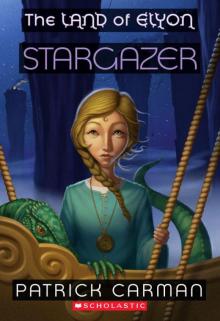 Stargazer
Stargazer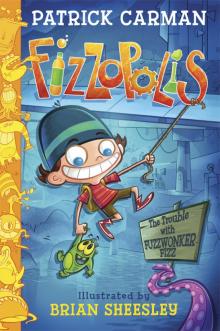 The Trouble with Fuzzwonker Fizz
The Trouble with Fuzzwonker Fizz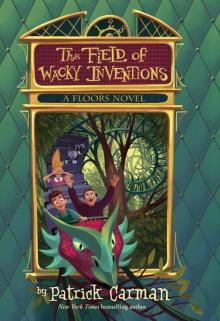 Floors #3: The Field of Wacky Inventions
Floors #3: The Field of Wacky Inventions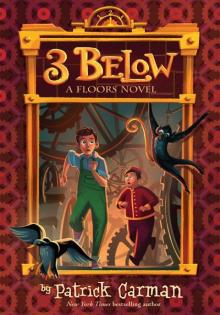 Floors #2: 3 Below
Floors #2: 3 Below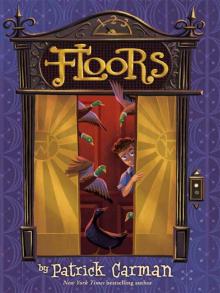 Floors: Book 1
Floors: Book 1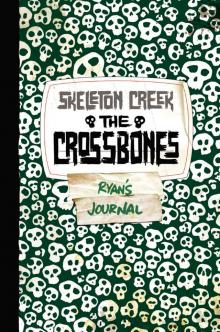 Crossbones
Crossbones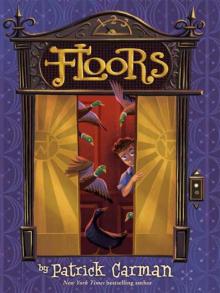 Floors:
Floors: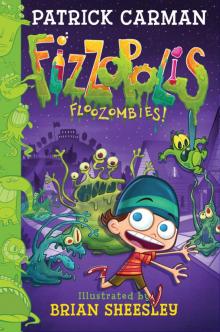 Fizzopolis #2
Fizzopolis #2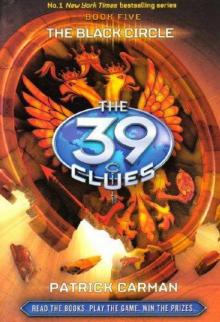 The Black Circle - 39 Clues 05
The Black Circle - 39 Clues 05 Into The Mist (Land of Elyon)
Into The Mist (Land of Elyon)